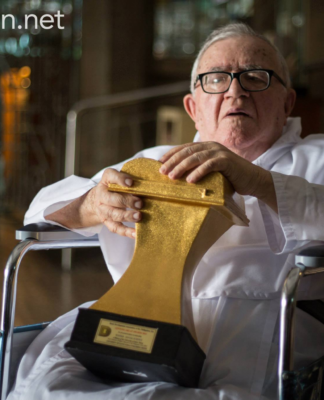EXPERTS see a struggle with academics who are unable to update their teaching skills with new technology, as schools further transition to the so-called digital age.
Maria Lourdes Baybay, director of the Asian University Digital Resource Network at Miriam College, said “digital migrants” or those who did not grow up in the digital age would have to adapt sooner or later. “We’re trying to convince the teachers to use digital tools,” Baybay said during the “Teaching and Learning Local Knowledge in the Digital Age” conference at the Thomas Aquinas Research Complex last May 11.
The academe has no choice but to “live in a digital age,” Baybay added.
Thomasians, meanwhile, should strive to maintain their cultural identity amid foreign influences brought by technological advances.
Clarita Carillo, vice rector for academic affairs and research, noted that students are becoming more reliant on digital tools such as the Internet out of fear of being “left out.”
Baybay reminded Thomasians to increase their local knowledge amid the onslaught of Western ideas.
Department of Social Science chair Fernando Pedrosa said local knowledge includes common “practices that are endemic or peculiar in a certain place.”
“Local knowledge is the area or knowledge that is unique but is taken for granted by people and yet we encounter them in our daily lives,” Pedrosa said in an interview.
Examples of local knowledge are Filipino customs inside public vehicles, the use of “po” and “opo,” and the traditional delicacies of the country, he said.
Local knowledge in UST pertains to the history and heritage of the University, Department of History head Augusto de Viana said “The UST Hymn is a local knowledge. Those who belong to other universities do not know that,” he said in Filipino. “The heroes and presidents who graduated here, the University’s mission and vision, and even the officials in the University are all local knowledge.”
Local knowledge among Thomasian students is poor, he said. “It is not that alarming, but if one does not know much about his own institution, it’s embarrassing,” he said.
‘Hopeful’ academe
De Viana and Pedrosa are positive about the use of digital tools in promoting local knowledge, especially with the implementation of the K+12 program of the Department of Education this school year.
“[In] K+12, starting from elementary, students are taught of their local history,” De Viana said.
For Pedrosa, local knowledge will be easier to teach under K to 12, with the help of technology.
“K+12 is a problem-posing type of learning. [Teachers] will impart the knowledge then [students] will discuss it,” Pedrosa said.
Digital tools such as the Internet and multimedia materials can also contribute to knowledge and values formation, he said. Cez Mariela Teresa G. Verzosa












